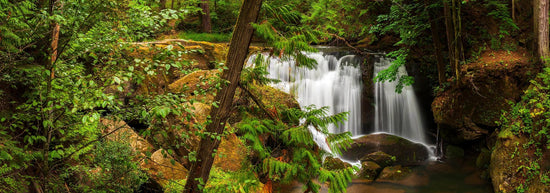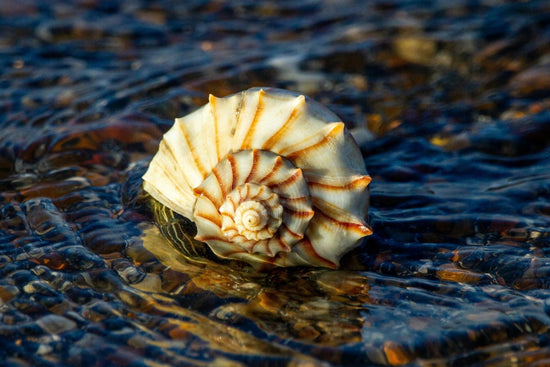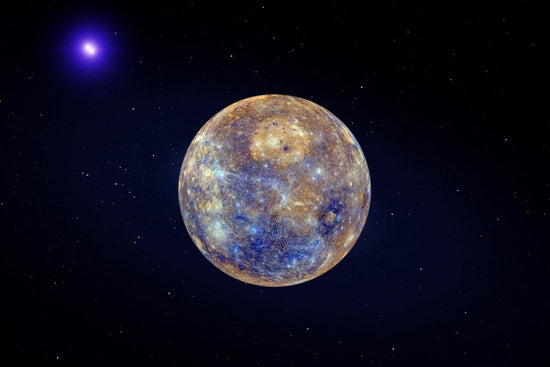With the current rate of plastic pollution, climate change, and deforestation, our world needs some good environmental champions. Luckily for all of us, there are some truly badass people out there fighting the good fight and making real change happen.
Accomplishments reached by the individuals on this list take an intense dedication to doing the work, fighting tirelessly against a system that’s consistently rigged. It also takes an intense amount of love - for people, for the planet, and for the future of all living things.
Doing this work as a person of a marginalized community means the fight is going to be that much more intimidating, which is why we want to especially highlight BIPOC and womxn working as crusaders for our world. Everyone on this list has broken ground or shattered a glass ceiling somewhere on their journey.
Here’s our list of 10 revolutionary environmental heroes you absolutely need to know about:
1. Tina Birmpili

Currently the Executive Secretary of the Ozone Secretariat, UNEP, Tina Birmpili has had a long career working on policy analysis and implementation of sustainable development issues. She’s the former Minister of Environment, Energy, and Climate Change in Greece.
After attending the Climate Leaders’ Summit: Women Kickin’ It On Climate in 2018, she’s been pushing for equal gender representation and inclusivity in the fight against climate change.
Birmpili is now focused on tackling issues that affect the ozone layer. One of her biggest accomplishments heading the Ozone Secretariat involved long negotiations that created the Kigali Amendment to the Montreal Protocol, recognized as one of the most important agreements in history regarding climate change. Implemented in January 2019, the protocol will avert a significant amount of global warming by the end of the century.
2. Musimbi Kanyoro

As the former President & CEO of the Global Fund For Women, Dr. Musimbi Kanyoro is a true leader on women’s rights and the environment. In 1998, she was appointed as general secretary for the World YWCA, becoming the first non-white woman in that role in its 150 years of existence. While there, she transformed the Global Board of Trustees, which is now made up of 55% women under 30.
Because women in developing countries are particularly vulnerable to the impacts of climate change, Kanyoro highlights the importance of women being at the forefront of the fight for a sustainable future. She empowers young women to lead and is paving a path for women to gain more access to economic opportunity.
3. Christiana Figueres

Christiana Figueres is a Costa Rican diplomat who has long been working in collaborative diplomacy. She is known for accelerating the global response to act on climate change.
Figueres served as Executive Secretary of the United Nations Framework Convention on Climate Change (UNFCCC) from 2010 to 2016. Her work with the UNFCCC led to the signing of the historical Paris Agreement of 2015. The agreement brings together all nations to fight against climate change as well as adapt to its negative effects. It also offers advanced support for developing countries to do so.
4. Robert Bullard

Known as the “Father of Environmental Justice”, Dr. Robert D. Bullard is a leader in the intersection of race and environmentalism. This powerhouse has written eighteen books concerning the topics of environmental racism, climate justice, and urban land use.
Because zip code is still the best predictor of a person’s health and wellbeing, Bullard uses his skills in teaching and writing to work to reduce environmental, health, economic, and racial disparities.
Bullard served as the Dean of the Barbara Jordan-Mickey Leland School Of Public Affairs at Texas State University from 2011 - 2016. Currently, he holds the position of Distinguished Professor of Urban Planning and Environmental Policy at TSU.
Bullard’s work has earned him several prestigious awards and titles. In 2013, he became the first African American to be honored with the John Muir Award. Newsweek named him one of 13 Environmental Leaders of the Century and the Sierra Club named their Environmental Justice Award after him in 2014.
5. Sylvia Earle

Legendary oceanographer Sylvia Earle is the President and Chairman of Mission Blue, a global coalition that works to inspire action to explore and protect the ocean. Titled “Her Deepness” by the New Yorker and The New York Times, she is a true zealot for the world’s oceans.
After being rejected for an underwater mission based on her gender, Sylvia Earle led Tektite II: Mission 6 in the summer of 1970. This all-female expedition of aquanauts lived on the seafloor for two weeks, observing and photographing a coral reef in the Virgin Islands.
Earle has been a National Geographic Explorer In Residence since 1999 and was the first female chief scientist of the U.S. National Oceanic and Atmospheric Administration. Time Magazine named her its first Hero for the Planet. She won the Ted Prize for her 2009 Ted Talk, “My Wish: Protect Our Oceans”.
Earle is an explorer, author, lecturer, and all-out badass who has served as a government official, research scientist, and director for several impactful organizations. Deemed a living legend by the Library of Congress, she has led over 100 expeditions and spent thousands of hours underwater.
6. Miranda Wang

At just 18 years old, Miranda Wang and her high school friend Jeanny Yao discovered a bacterium that could break down certain plastics. The duo went on to found a company called BioCellection, which works to break down unrecyclable plastics into reusable and biodegradable compounds. These chemical “building blocks” are then turned into everyday items, like steering wheels.
In recognition of Wang’s incredible work, she was named a Laureate of ROLEX Awards for Enterprise. She also received the UN Environment Programme’s Young Champions of the Earth Award in 2018. A true pioneer for the environment, Wang believes we must (and can) solve the world’s plastic pollution problem in this generation.
7. Nathaniel Smith

Nathaniel Smith is the founder and CEO of the Partnership for Southern Equity (PSE). The mission of his Atlanta-based company is “to advance policies and actions that promote racial equity and shared prosperity” for those in the American South.
One of PSE’s main focuses is to create a more equitable energy policy and clean energy that benefits everyone. The company has seen success in influencing environmental policy. Smith was honored as one of eight “Up and Coming Black Leaders in the Climate Movement” by the Huffington Post in 2017.
Smith is also involved in the U.S. Water Alliance task force team in Atlanta, where he’s working to ensure equitable water policies.
8. Peggy Shephard

Since the 1980’s, Peggy Shephard has been working on environmental protection campaigns in and around New York. She has a long history of engaging local residents to address environmental protection and environmental health policy both locally and nationally.
She is now the co-founder and Executive Director of WE ACT for Environmental Justice, a company whose mission is self-explanatory. WE ACT works with physicians and scientists at leading medical institutions, law schools, and diverse environmental organizations.
Her particular skill set of grassroots organizing and community-based activism has earned her many accolades. For her decades of leadership in urban sustainability, she was awarded an Honorary Doctor of Science from Smith College. Shephard also received the 10th Annual Heinz Award for the Environment and the 2008 Jane Jacobs Lifetime Achievement Award, among others.
Shephard’s life mission is to ensure that the right to a clean, healthy, and sustainable environment is possible and attainable for all.
9. Vandana Shiva

Environmental activist, food sovereignty advocate, and anti-globalization author Vandana Shiva is a force to be reckoned with. She’s well-known for being the world’s fiercest opponent to Monsanto, the global agrochemical giant infamous for genetically modifying food crops.
For over forty years, Indian-born Shiva has played the role of food hero, standing up against conventional agriculture and biotechnology. In 2010, Forbes called her one of the Seven Most Powerful Feminists on the Globe. She received the Right Livelihood Award in 1993, referred to as the “Alternative Nobel Prize”. Her campaign against genetic engineering has taken her to grassroots organizations in Africa, Asia, Latin America, Ireland, and some parts of Europe.
Shiva founded Navdanya, a name which means “nine seeds”, a symbol for the protection of biological and cultural diversity. The NGO exists to protect the diversity of native seeds and promote organic farming and fair trade.
10. Winona LaDuke

Winona LaDuke is an internationally renowned American environmental activist, economist, and writer. She lives on the White Earth reservation in Northern Minnesota, where she focuses on issues of sustainable development, renewable energy, and food systems.
As Executive Director of Honor the Earth, LaDuke is known for her work on tribal land claims and preservation. She’s a warrior for environmental justice within indigenous communities and was inducted into the National Women’s Hall of Fame in 2007.
In her own community, LaDuke founded the White Earth Land Recovery Project, which stands as one of the largest reservation-based nonprofits in the country. The organization is a leader in the field of culturally-based renewable energy and sustainable development. She works to protect heritage foods and Indigenous plants from the threat of genetic engineering.





